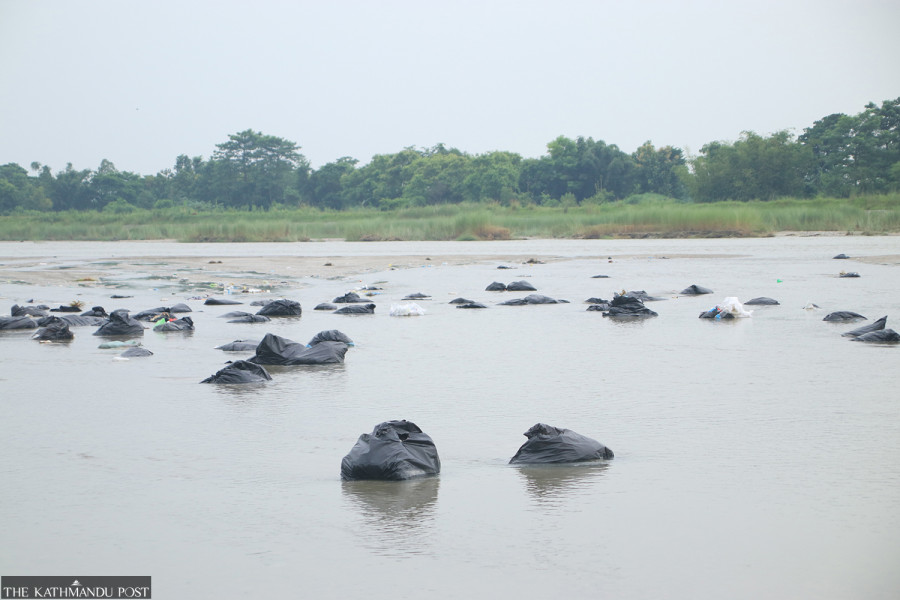Editorial
Not in the river
Dumping medical waste in rivers leads to fatal consequences as they become sources of disease.
The Post report published on Thursday about medical waste being thrown into the Biring River in Birtamod is chilling to the bone. The photograph accompanying the story, showing dozens of black garbage bags full of medical waste floating on the water, reveals how medical institutions have been making the river a dumping site in Birtamod. The dumping of medical waste into the river in a country where most of the population worships rivers as a sacred entity is despairing. Such mindless acts lead to fatal consequences as contaminated rivers become sources of disease.
Considered the most hazardous form of waste, medical waste warrants extreme care in handling as it poses significant risk to humans, animals and the environment. Even if made of non-biodegradable materials, much of the medical waste cannot be recycled through the standard procedure as it often carries pathogens that take longer and higher temperatures than regular waste to be destroyed. This is why medical waste cannot be sent to regular waste management facilities. Segregating medical waste and disposing of hazardous materials should be a no-brainer for those employed in the medical sector.
Since there is no dearth of international and local guidelines on medical waste disposal, it is not difficult to gauge where the problem lies: Implementation. However, a host of health institutions across the country seem to be acting callously. As the Post reported earlier, workers from Metrocity Waste Management, which collects non-risk general waste from Bir Hospital, among other health institutions, found human body parts while collecting waste. The encounter with the grotesque remains reportedly left the workers traumatised. Waste managers repeatedly complain of having to deal with hazardous needles and broken glasses of used syringes disposed of irresponsibly.
The callousness of the medical sector became even more evident during the pandemic, as the medical waste generated from Covid-19 wards was often mixed with general waste. Little attention was paid to effective waste management even after several months into the pandemic. In fact, the coronavirus pandemic caused a greater challenge for waste disposal, as most of the infected persons stayed in isolation, creating coronavirus-related waste at home itself. Although the Ministry of Health issued interim waste management guidelines for handling trash, and a separate set of guidelines for those isolating at home, health institutions as well as individuals reportedly failed to abide by those guidelines.
The government failed to disseminate the information widely, leading to the public disposing of contaminated waste irresponsibly. Moreover, waste workers were often not trained in handling harmful medical waste, which posed a risk to their health and well-being. No one should be made a victim of hazardous waste material because of the callousness of a few individuals and institutions. Hospitals should fulfil the social responsibility of segregating medical waste and disposing of it with optimum safety without anyone having to tell them.




 16.12°C Kathmandu
16.12°C Kathmandu














